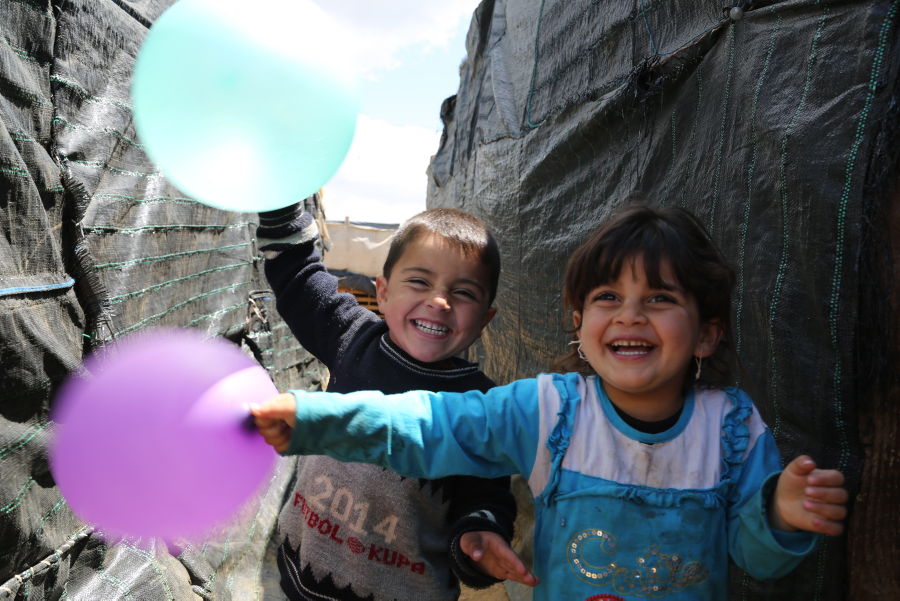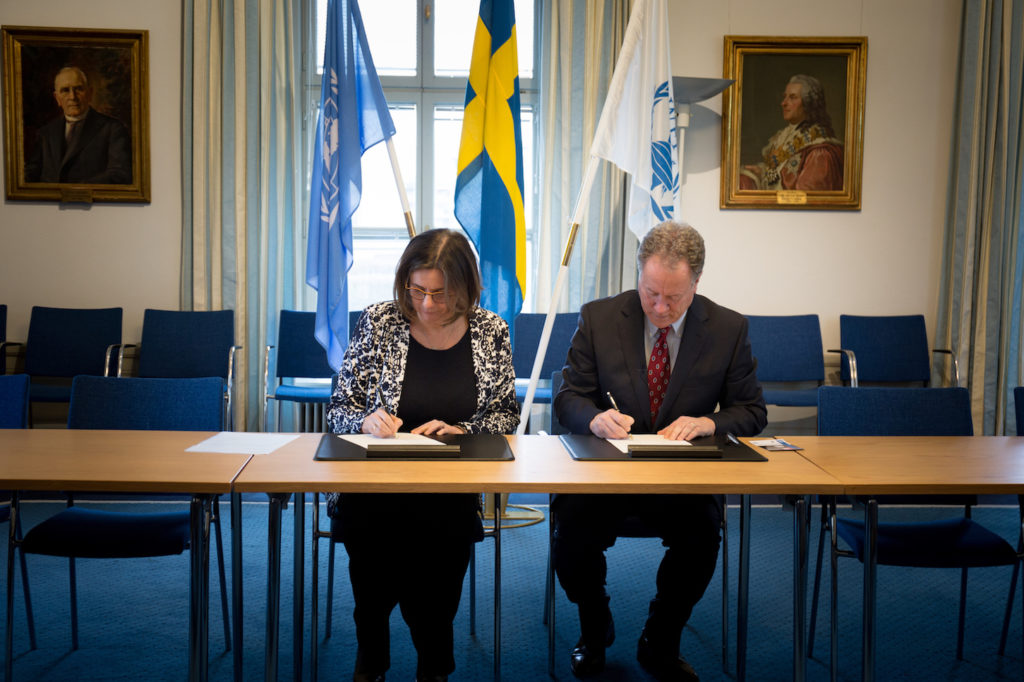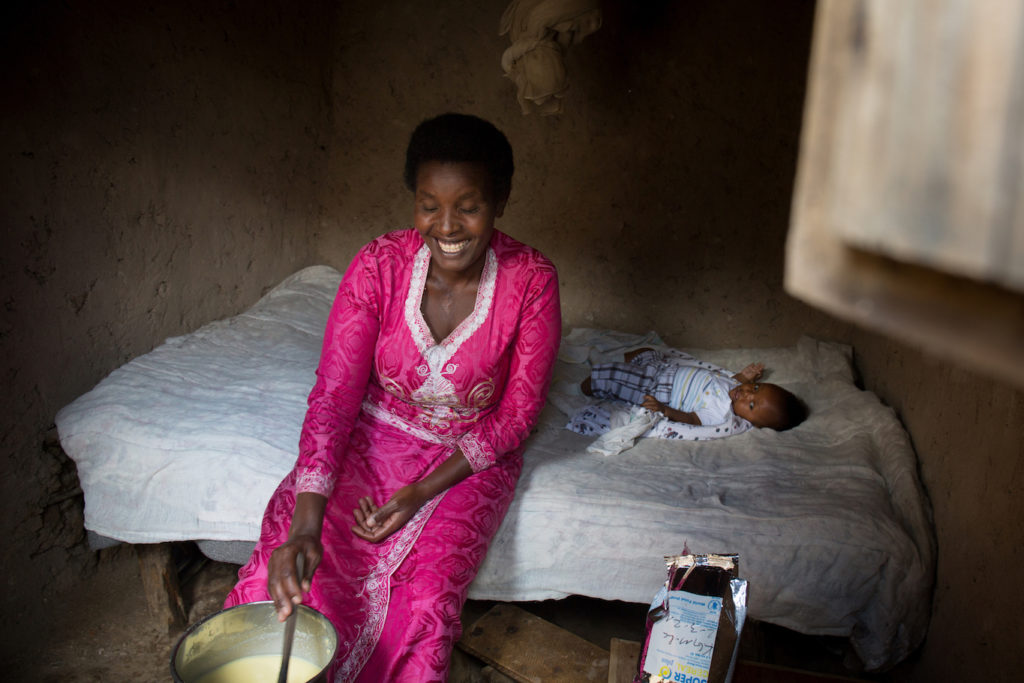Sweden and the UN World Food Programme have entered a landmark agreement that will bring hope to millions of people trapped by war and displacement crises.
With a new Strategic Partnership Agreement, signed in February between WFP and Sweden, the Government of Sweden steps up for a zero hunger world.
With the agreement, Sweden has made a commitment of US$370 million in flexible funds to WFP over the next four years. The contribution comes at a time when the world is facing the worst humanitarian crisis since the end of World War II, and when the number of hungry people is increasing for the first time in a decade.
Flexible funds – ensuring a rapid response
Flexible funding is critical to enhance WFP’s ability to respond quickly and effectively to emergencies and increase its agility to best manage programmes and make strategic decisions. Sweden has consistently been one of the biggest donors of flexible funding for the last ten years. Flexible funding makes emergency response possible – both as preparedness ahead of a potential disaster and as the disaster occurs. This allows WFP to act swiftly, thereby saving more lives. Furthermore, Sweden empowers WFP to allocate life-saving funds where they are most needed, making it possible for WFP to reach the most vulnerable people in some of the world’s forgotten crises.
“The people and the government of Sweden help us bring hope to millions of people, including the most vulnerable people caught up in some of the world’s most heart-breaking crises. When it comes to saving lives and changing lives, Sweden is a global leader,’’ said WFP Executive Director David Beasley.


